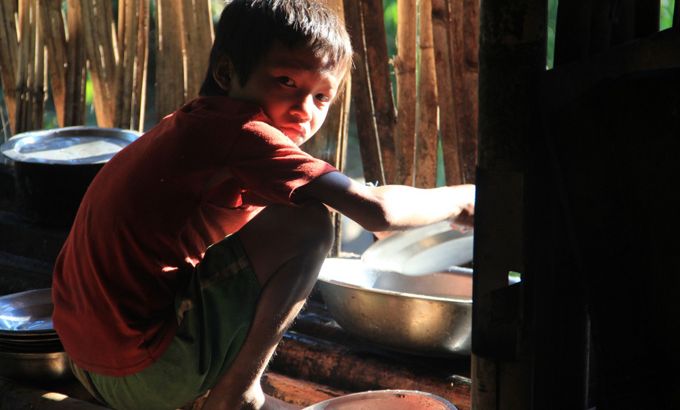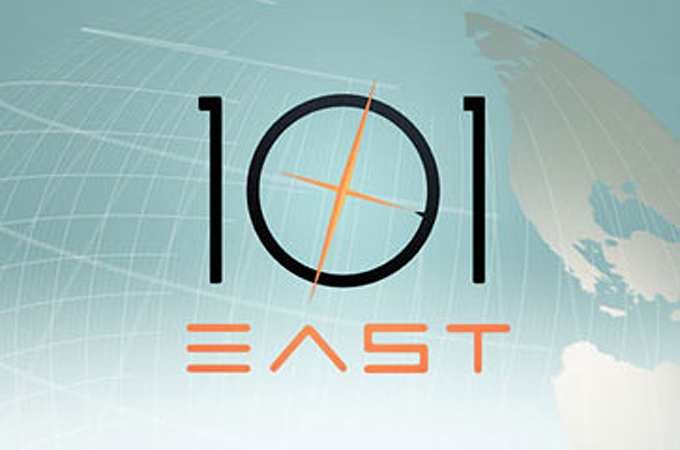
Myanmar’s fragile peace
101 East looks at whether the fragile peace between Myanmar’s government and ethnic groups will last.
Myanmar, a diverse country of over 55 million people has entered a new era of unprecedented democratic reform after decades of military rule.
The success of the country’s transition hinges on peace negotiations with multiple armed ethnic groups.
These minorities represent more than one-third of the population in the resource-rich borderlands of the country. In the past year, ceasefire agreements have been signed with 13 rebel armies, but one conflict in Kachin state remains the key stumbling block.
Chief peace negotiator U Aung Min has given 101 East exclusive access to the latest round of negotiations with the Kachin, as he navigates the tricky path to peace.
Balancing the interests of armed rebels, the Myanmar army and the country’s powerful neighbour, China, is no easy task. Many speculate that the reason for the ongoing fighting lies in control of the resources in Kachin state.
Aung Min has drafted an unlikely band of former exiles and rebel fighters onto his team.
They work tirelessly, often unpaid, to help Myanmar at this critical moment in its history. Min Zaw Oo was a student fighter who battled the military in the jungle and is now one of Aung Min’s closes advisors at the Myanmar Peace Center.
International help has been forthcoming, too. Charles Petrie, former head of the UN in Myanmar, was expelled by the former regime and is now back to help ensure the ceasefires hold. Working with the Norwegian-funded Myanmar Peace Support Initiative, his team supports people in some of the country’s most remote locations. Many are only just being coaxed out of hiding after decades on the run.
Mistrust runs deep and key stumbling blocks in the peace process remain. Ethnic leaders want to begin talks on power sharing and running their own affairs. But it is unclear if support exists for constitutional change from the 25 percent military block in Myanmar’s parliament. Ethnic armies, meanwhile, are refusing to give up their guns.
101 East takes a rare look into Myanmar’s forgotten corners, and follows the country’s leaders as they navigate a fragile path to peace.
| The black and white of peacemaking |
By Aela Callan
Two and a half years ago, at the Grand President Hotel in Bangkok, I sat down to tea with a former general from Myanmar’s military regime. It was a slightly awkward meeting for us both, not the least because I had spent the better part of the preceding two years reporting undercover in Myanmar for Al Jazeera English, precisely trying to avoid the attention of the authorities.
We talked about the Sky train. Bangkok’s elevated rail system had amazed U Aung Min, who was then railways minister in an untested new Myanmar government. He expressed regret that Myanmar was so far behind Thailand – something he realised on this first trip outside of his country.
At that point, no-one had much of a reason to expect that the administration, led by President Thein Sein, would be any different from the military junta that had ruled and repressed Myanmar for decades. Much of the new government was made up of ex-military men who had removed their uniforms, like U Aung Min.
Agreeing to meet me, even off the record, must have come with at least some political risk for him. On the other side of the table, I was full of journalistic curiosity but also apprehensive that this meeting could lead to being placed on a black-list, which could see me banned from the country which had completely captivated me. But far from facing a stern general, I found a sincere, committed individual who asked fundamental questions about outside perceptions of his country, democracy and press freedom.
I was not surprised when U Aung Min, an odd choice considering his railways portfolio, was later commissioned by President Thein Sein, to sort out the country’s biggest challenge: making peace with dozens of armed ethnic groups in Myanmar’s borderlands.
Since that time, whenever we have happened to meet, our conversations have ranged from his frustration at of some of Al Jazeera’s coverage, to fascinating glimpses into the strictly controlled life he led in the army. Our views remain divergent on many issues, but he will happily debate anything.
In fact, I may have more trouble trying to convince my own grandfather to see a different perspective on world affairs than U Aung Min. His personal transformation is nothing short of extraordinary, considering that he was educated and spent his entire career in one of the world’s most oppressive military regimes. Not one ethnic leader, analyst or critic I spoke to during making this film doubted his sincerity. But he has a lot of work to do.
Across Myanmar’s seven states and seven divisions, there are 135 distinct ethnic groups and 40 armed groups, many who have been fighting since independence in 1948. On top of that, the military still control 25 percent of seats in parliament and hold a casting vote over constitutional change, which is needed to give the states the power they want.
U Aung Min is trying to walk a tightrope between all of these interests. And then there are the neighbours; China and Thailand are invested in the country’s ethnic border regions, where long years of isolation have allowed murky business deals to go unchecked. Making peace will see a complete transformation of the economic environment and not everyone stands to gain from it.
The military, cronies, neigbouring countries and the ethnic groups are all protecting their interests, but if the ceasefires are not managed carefully, it could quickly unravel. Land grabs, business ties, geo-politics and breakaway militias with no political agenda, are all potential spoilers in the peace process.
U Aung Min is philosophical about the scale of the task at hand. “Even just one day of peace will be very satisfying for me,” he told me during our interview for Myanmar’s Fragile Peace. “When I first met you, we had just got into power. Since then, we have had 23 months of experience and learnt a lot about democratic reform from international people. I have studied many peace processes in other countries, and it’s the same. It will take time to sort it out.”
The scale of his challenge is, in fact, greater than any other peace process that the world has known. But he keeps going.
Since I met Aung Min, I have learnt a lot, too. Myanmar is not a land of black and white, of democracy fighters versus military hardliners. The truth about individuals, both from the former regime and within the pro-democracy movement, is far more multi-faceted than we see from the outside.
I have learnt that the aspirations of the country’s ethnic groups are vastly different to the Bamar majority. I have learnt that very few people on either side of politics have grasped this, and are working to make it succeed. But those who have deserve help, because despite potential setbacks and spoilers, peace in Myanmar has never been this possible.
 | 101 East airs each week at the following times GMT: Thursday: 2230; Friday: 0930; Saturday: 0330; Sunday: 1630.
Click here for more 101 East |